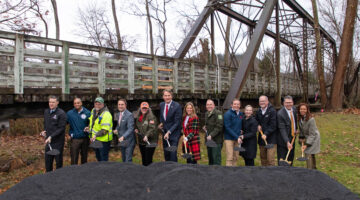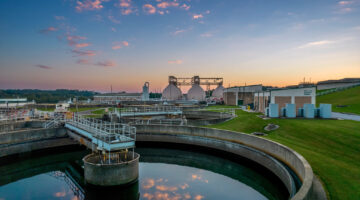Too often during construction of a project, the owner finds out that design, and consequently cost, need to be adjusted due to engineering deliverables that don’t align with construction realities.
Issues often begin during the pre-FEED or FEED (front-end engineering design) phases. Lack of communication and collaboration can lead to resource gaps and project constraints, in turn leading to costly fixes and delayed schedules. Left unaddressed, the effects may compound considerably throughout project development.
We’ve all heard, “the best defense is a good offense.” Project owners and developers can avoid many cost and schedule issues by involving the contractor much sooner. Early Contractor Involvement, or ECI, fosters visibility in all aspects of project execution, promotes open communication, and ultimately prevents costly surprises.
What is ECI?
ECI is an alternative project delivery method that integrates construction expertise into the early phases of project development to establish cost and schedule certainty. By including constructability input at the earliest stages, all parties can make more fully informed decisions on key aspects of design, procurement, execution and risk models to achieve best-for-project results.
In ECI, the entire project team benefits from having the construction team’s specialized knowledge from the start. Having insights from the field during design development allows the engineer to develop better-informed design specs that give the project owner a more realistic estimate of project cost before breaking ground. Incorporating an experienced contractor’s planning, scheduling, estimating and constructability solutions during project development also results in better construction phase risk mitigation. This further supports cost and schedule certainty for the project owner.
What Else Can ECI Deliver?
Highly complex project estimates may miss key components affecting project execution, contributing to delays and additional costs. ECI allows teams to review tasks that otherwise may not have been thought out in detail before execution. Below are a few examples.
- Optimized Modularization: By understanding the constraints and limitations of modularization, such as high-density work areas or areas accessible for module installation, the contractor can determine areas that might be a good fit for this approach. ECI can also help the team better evaluate the schedule to compare the efficiency of modularization versus stick-built structures.
- Logistics Planning: Equipment and structures accumulate throughout a project. Especially on tight construction sites, failure to define areas for various uses can create safety hazards, obstructing pathways and increasing construction delays from needing to relocate items. Deciding where to locate laydown and staging areas, assembly yards, and craft parking early in a project prevents unneeded downtime during execution.
- Labor: Depending on project size and complexity, construction execution may take a lot of manpower to produce the right results in the right amount of time. Failing to account for proper staff and crew numbers can create delays in the production schedule. ECI avoids these issues by planning the proper mobilization of staffing and manpower early in the project.
Better Overall Project Execution
Implementing ECI at the start of a complex project provides numerous benefits as outlined above. Bringing construction experts on early allows the team to assess and address challenges — before they become headaches during the build. ECI services help project owners and developers meet their project goals: on time and on budget, with realistic expectations set early. In addition, the project-first, collaborative atmosphere fostered by ECI paves the way for a smooth project.
About the Author
As the Vice President of Business Development, Energy Transition in Kiewit, Alastair Cullen has over 19 years of global experience, with a focus on large and complex projects in both onshore and offshore domains, and upstream and downstream sectors. Alastair is currently responsible for business development activities for projects in the energy transition space with a focus on EPC project delivery.


